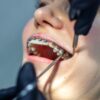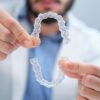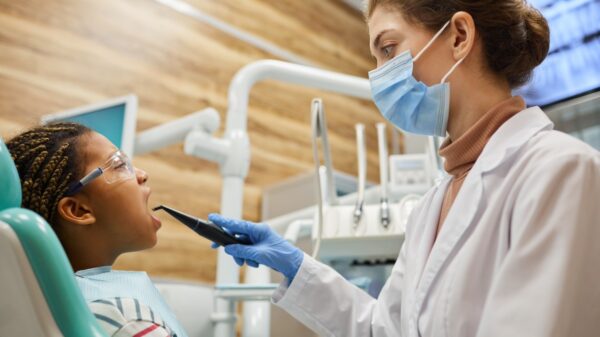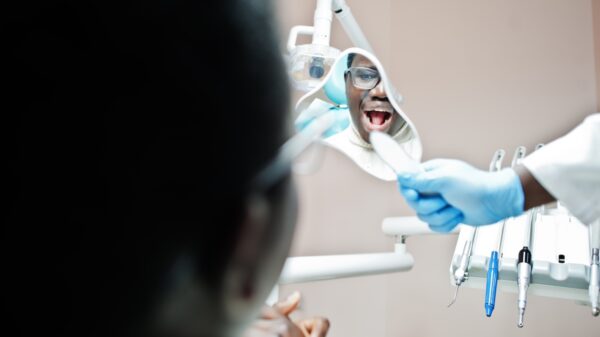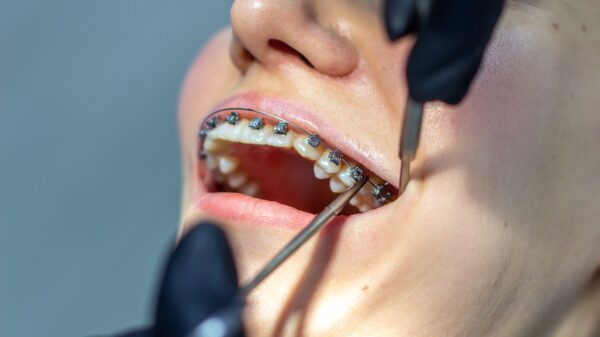How Gum Affects Your Dental Health
Chewing gum has been around for hundreds of years and many of us grew up regularly chomping on it. We have also not forgotten the repeated warnings from our parents. “Don’t swallow it!” “Make sure it doesn’t get in your hair!” “Spit your gum out in the trash!” Or you may be one that wasn’t even allowed to have gum as a child. One of those reasons could have been that your parents believed it was bad for your teeth. You can’t blame them for trying to do what they thought was best. But maybe you always wondered if gum was that bad? Even adults wonder about this too and it’s sparked plenty of debate amongst dentists everywhere.
So really, is gum bad or good for your teeth? According to many dentists, even though chewing gum can be bad for your teeth in some ways, on the whole, it’s not that bad. When you chew on something, whether it’s gum or an apple, you are exercising your facial muscles. This is a good thing because it helps keep them strong and healthy.
Chewing gum can actually help your teeth be healthier since it encourages the production of saliva in your mouth which washes away food particles from your teeth and makes sure you have a regular saliva flow. If you chew sugarless gum, it can actually help reduce the rate of cavities. So in general, gum isn’t bad for your teeth but some instances and habits can cause problems, let’s discuss those!
Why Gum Is Good For Your Teeth
There are three main benefits to chewing sugarless gum:
It Keeps the Muscles Healthy & Strong
Yes, chewing gum can help keep your facial muscles strong and healthy, which is very beneficial. You might not think that chewing gum has anything to do with exercising, but it does! Chewing the right kind of gum can be a great way to strengthen your jaw and keep you looking youthful longer.
It Promotes Good Saliva Flow
Saliva is very important for your oral health because it helps to wash away the bacteria that cause cavities. It also washes away food particles so that the bacteria don’t have as much food to feed off of. Saliva also helps keep your mouth moist which can help prevent tooth decay and bad breath.
It Helps Reduce Cavities
Sugarless gum can be very helpful in reducing the rate of cavities. The chewing causes your mouth to produce more saliva and research has shown that sugarless gum can reduce the amount of acid that is produced which protects against the formation of cavities.
 Why Gum is Bad For Your Teeth
Why Gum is Bad For Your Teeth
As I already mentioned, in general gum isn’t bad for your teeth however there are instances where it can have less than great consequences. Here are a few examples:
It Can Lead to A Broken Tooth
Although this isn’t a common thing, it is still something to be aware of. Chewing gum too hard could potentially break a tooth and cause some major damage. Excessive, hard chewing can also wear down the enamel on your teeth and cause sensitivity.
![]()
It Can Lead to Jaw Pain
When you chew on something constantly, your muscles get tired and develop pains over time. This is the case when it comes to chewing gum too! Many people complain about having sore jaws after several days of constant chewing. The best thing to do is take a break every once in a while and chew on something softer.
It Can Cause Headaches
This is another common complaint about chewing gum. Some people have headaches after chewing gum for a long period and often, this can be due to the sugar substitutes in the gum. Also, the constant tension placed on your jaw can travel up to your head and cause some serious headaches.
It Can Cause Cavities
Chewing on sugar gum can cause cavities because it causes an acid release in your mouth. Just as you shouldn’t be eating candy all day, gum is no different. There is a reason why sugar-free gum was invented; it’s better for your teeth and overall health.
Should You Chew Gum After Brushing Your Teeth?
A common question involving gum and dental health is if you can chew it right after brushing. The answer depends on what kind of toothbrush you have and what your gum health is like. If you have a cross-action or ultrasonic brush, it might be best to give your teeth a break before chewing some gum.
These kinds of toothbrushes can damage the enamel so after brushing with one, it might be better to let your teeth recover a bit. If you have a regular toothbrush, it’s okay to chew some gum right after brushing if your teeth don’t seem too sensitive.
![]()
Can You Swallow Gum?
And going back to when we were kids and our parents would have a fit if we swallowed our gum. So will it make all of our insides stick together? No, it won’t. You actually can swallow gum and it is completely safe for your stomach. It’s the ingredients in the gum that make it safe.
It can slow down stomach acids and processes so your body isn’t able to absorb much. Although gum swallowing is safe, it still doesn’t mean you should swallow your gum! It would be better to get rid of it by popping it into a trash can.
I Have Braces, Should I Avoid Gum?
If you have braces, you might think that it’s best to stay away from gum due to the sharp edges of the metal. However, the reality is that the edges are rounded enough so there isn’t much risk.
If you don’t want any gum getting caught in your braces, stick with sugar-free gum since it has less potential for getting stuck. As long as you are careful, your braces shouldn’t be much of an issue when it comes to gum.
Does Gum Help With Anxiety or Stress?
Chewing gum does help with stress and anxiety. However, the reason why might not be what you think it is. A lot of people tend to believe that chewing gum helps with reducing anxiety because it occupies their hands and forces them not to fidget or “act out” due to stress. But whether it’s because of the act of chewing or the minty taste, it’s actually helping you.
Studies have shown that chewing gum can reduce anxiety and stress levels by making your body release dopamine which is a “feel-good drug” in the brain. The reason why this happens is that when you chew gum, it speeds up your heart rate, boosts your brainpower, and reduces stress.
This is why people who are chewing gum can keep a straight face during a comedy show or movie. It has been shown that the more you chew on some gum, the more you begin to relax and feel at ease.
This happens because when you focus on chewing gum, it clears your mind and keeps you from thinking about anything else. And because of the activeness, your brain can release dopamine which brings on feelings of happiness. This has helped people from doing other, more harmful things like biting on their lips or the inside of their cheeks.
How Does Gum Help Smokers Quit?
Smokers who are trying to quit often will chew on some gum when they get the urge to smoke. Gum can help with smoking urges by giving your mouth something else to do and letting your brain focus on the act of chewing rather than smoking.
Nicotine is an addicting drug which means that all of the time you spend not smoking is making it easier to stop the addiction. Surgeons and doctors recommend that people who are trying to quit smoking use chewing gum as a way to avoid the urge and addiction. This is because it’s proven that chewing gum can reduce heart rate and stress, just like I talked about earlier.
How Often Can I Chew Gum?
It’s okay to chew gum regularly, but try not to overdo it. If you are chewing too much gum in a day or for too long of an amount of time, that can cause bad breath and might end up creating some cavities.
Chewing on the same flavor for more than 15 minutes can also lead to cavities due to the sugar that is mixed in with the gum, especially if you aren’t brushing your teeth right after. It’s best to try and keep a schedule for your daily gum chewing. If you prefer to chew on a certain flavor for most of the day, make sure you switch it up!
As you can see, there are plenty of pros and cons to chewing gum. The only thing you need to be careful about is if you are chewing on sugar-free gum and don’t chew too much. Everything you consume needs to be done in moderation and gum is no different. So consider these pros and cons when it comes to your gum-chewing habits and choose what’s best for you and your teeth!









